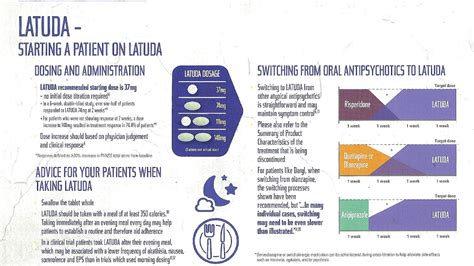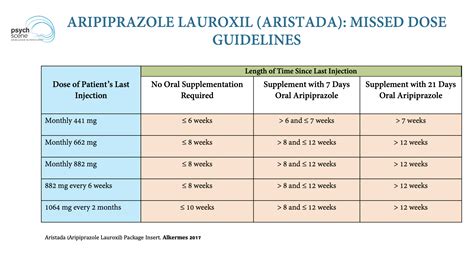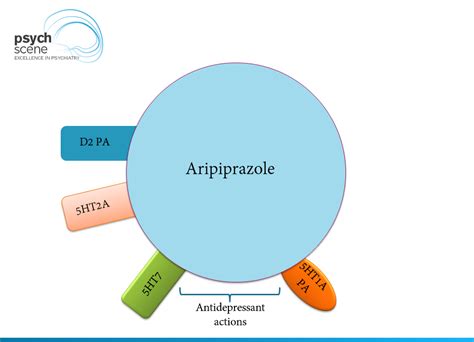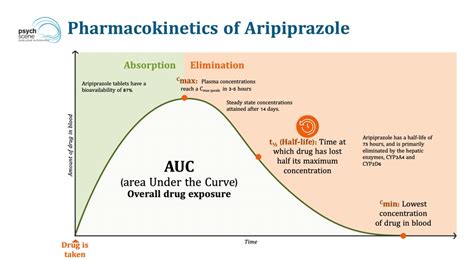Intro
Learn about Aripiprazole 2mg Tablet, an antipsychotic medication treating schizophrenia, bipolar disorder, and depression, with information on dosage, side effects, and interactions, to manage mental health conditions effectively.
Aripiprazole, commonly known by its brand name Abilify, is a medication that has been widely used in the treatment of various mental health conditions. The aripiprazole 2mg tablet is one of the dosage forms available for this medication, indicating its versatility in treating a range of conditions with precision. Understanding the details of aripiprazole, including its uses, side effects, and how it works, is crucial for both healthcare providers and patients to ensure its safe and effective use.
The importance of aripiprazole lies in its ability to manage symptoms of schizophrenia, bipolar disorder, and major depressive disorder, among other conditions. It belongs to a class of medications known as atypical antipsychotics, which are preferred over typical antipsychotics due to their lower risk of certain side effects, such as extrapyramidal symptoms. The availability of aripiprazole in various dosages, including the 2mg tablet, allows for personalized treatment plans that can be adjusted according to the patient's response and tolerance to the medication.
Aripiprazole's mechanism of action is unique compared to other antipsychotic medications. It works by affecting the levels of certain natural chemicals in the brain, such as dopamine and serotonin, which are involved in mood regulation and other functions. By modulating these neurotransmitters, aripiprazole helps to alleviate symptoms of psychosis, mania, and depression. The precise dosage, such as the 2mg tablet, is crucial in achieving the desired therapeutic effect while minimizing potential side effects.
Aripiprazole Uses and Benefits

Aripiprazole is used for several purposes, including the treatment of schizophrenia, bipolar I disorder, and as an adjunctive treatment for major depressive disorder. Its benefits include the improvement of symptoms such as hallucinations, delusions, and disorganized thinking in schizophrenia, and the stabilization of mood in bipolar disorder. For major depressive disorder, aripiprazole can help increase the effectiveness of antidepressant therapy when used as an adjunct.
The benefits of using aripiprazole, particularly in its 2mg tablet form, include its relatively low risk of weight gain and metabolic side effects compared to some other atypical antipsychotics. This makes it a preferable option for patients who are at risk of developing these side effects. Additionally, aripiprazole's unique pharmacological profile allows it to be used in a wide range of patients, including the elderly and those with certain medical conditions, under the guidance of a healthcare provider.
Working Mechanism of Aripiprazole
Aripiprazole's working mechanism involves partial agonism of the dopamine D2 and serotonin 5-HT1A receptors, and antagonism of the serotonin 5-HT2A receptor. This complex action helps in stabilizing dopamine and serotonin levels in the brain, which are crucial for mood regulation and other cognitive functions. By acting on these receptors, aripiprazole helps to reduce the symptoms of psychosis and mood disorders without causing significant sedation or extrapyramidal side effects, which are common with some other antipsychotic medications.Aripiprazole Side Effects and Precautions

While aripiprazole is generally well-tolerated, it can cause side effects, especially during the initial stages of treatment or when the dosage is adjusted. Common side effects include nausea, headache, dizziness, and restlessness. In some cases, more serious side effects can occur, such as allergic reactions, neuroleptic malignant syndrome, or tardive dyskinesia, although these are rare.
Precautions should be taken when prescribing aripiprazole, especially in certain patient populations. For instance, elderly patients with dementia-related psychosis are at an increased risk of death when treated with atypical antipsychotics, including aripiprazole. Additionally, aripiprazole should be used with caution in patients with a history of seizures, as it may lower the seizure threshold. Regular monitoring of side effects and adjustment of the dosage, such as switching to or from the 2mg tablet, can help in managing these risks.
Steps for Taking Aripiprazole
To ensure the safe and effective use of aripiprazole, patients should follow these steps: - Take the medication exactly as prescribed by the healthcare provider. This includes the dosage, such as the 2mg tablet, and the frequency of administration. - Do not stop taking aripiprazole without consulting a healthcare provider, as this can lead to withdrawal symptoms or a relapse of the condition being treated. - Regularly attend follow-up appointments to monitor the effectiveness of the treatment and potential side effects. - Inform the healthcare provider about any other medications being taken, including over-the-counter drugs and herbal supplements, to avoid potential drug interactions.Aripiprazole Dosage and Administration

The dosage of aripiprazole can vary depending on the condition being treated and the patient's response to the medication. The 2mg tablet is one of the lower dosages available, which can be beneficial for patients who are sensitive to the medication or for those who are being initiated on aripiprazole treatment. The typical dosage range for schizophrenia and bipolar disorder is between 10mg to 30mg per day, but this can be adjusted based on the patient's needs.
For major depressive disorder, aripiprazole is typically started at a dose of 5mg to 10mg per day, which can be adjusted up to 15mg per day if needed. The dosage should be titrated gradually to minimize the risk of side effects. It's essential to follow the healthcare provider's instructions regarding the dosage and administration of aripiprazole to achieve the best possible outcome.
Practical Examples of Aripiprazole Use
In clinical practice, aripiprazole's versatility is demonstrated through its use in various patient scenarios. For example, a patient with schizophrenia who is experiencing a relapse of psychotic symptoms may be initiated on aripiprazole 10mg per day, with the dosage adjusted based on the patient's response. In another scenario, a patient with bipolar I disorder may be prescribed aripiprazole 15mg per day as a maintenance treatment to prevent mood episodes.Aripiprazole Interactions and Warnings

Aripiprazole can interact with other medications, which may affect its efficacy or increase the risk of side effects. For example, certain antifungal medications, HIV protease inhibitors, and some antibiotics can increase aripiprazole levels in the blood, potentially leading to increased side effects. On the other hand, carbamazepine, an anticonvulsant, can decrease aripiprazole levels, reducing its effectiveness.
Warnings and precautions also include the risk of orthostatic hypotension, particularly during the initial dose titration period, and the potential for aripiprazole to impair cognitive and motor skills, which can affect activities such as driving. Patients should be advised to avoid alcohol and other central nervous system depressants while taking aripiprazole, as these can exacerbate sedation and other side effects.
Statistical Data on Aripiprazole Efficacy
Clinical trials have demonstrated the efficacy of aripiprazole in treating various psychiatric conditions. For instance, in trials for schizophrenia, aripiprazole has been shown to significantly improve symptoms of psychosis compared to placebo. Similarly, in bipolar disorder, aripiprazole has been effective in reducing manic symptoms and preventing relapse. Statistical analyses from these trials support the use of aripiprazole as a first-line treatment option for these conditions.Aripiprazole FAQs

Given the complexity of aripiprazole's use and its potential interactions, patients often have questions about its administration, side effects, and efficacy. Here are some key points to consider:
- Q: What is the most common dosage of aripiprazole? A: The dosage can vary, but common ranges are between 10mg to 30mg per day for schizophrenia and bipolar disorder.
- Q: Can aripiprazole be used in children? A: Aripiprazole is approved for use in children for certain conditions, such as irritability associated with autistic disorder, under the guidance of a healthcare provider.
- Q: How long does it take for aripiprazole to start working? A: The onset of action can vary, but improvements in symptoms can be seen within a few weeks of starting treatment.
What are the common side effects of aripiprazole?
+Common side effects include nausea, headache, dizziness, and restlessness. More serious side effects can occur but are rare.
Can I stop taking aripiprazole without consulting my doctor?
+No, it's crucial to consult with your healthcare provider before stopping or adjusting your dosage of aripiprazole to avoid withdrawal symptoms or relapse of the condition being treated.
How does aripiprazole interact with other medications?
+Aripiprazole can interact with various medications, including antifungals, HIV protease inhibitors, and certain antibiotics, which can either increase its levels and side effects or decrease its efficacy.
Final Thoughts on Aripiprazole

In conclusion, aripiprazole is a valuable medication in the treatment of various psychiatric conditions, offering a unique mechanism of action and a relatively favorable side effect profile. The availability of the 2mg tablet, among other dosages, allows for tailored treatment approaches that can be adjusted according to the patient's needs and response. By understanding the uses, benefits, and potential side effects of aripiprazole, healthcare providers and patients can work together to achieve the best possible outcomes.
We invite readers to share their experiences or ask questions about aripiprazole in the comments section below. Your input can help others better understand the medication and its role in treating mental health conditions. Additionally, consider sharing this article with others who might benefit from the information provided, contributing to a more informed and supportive community.
